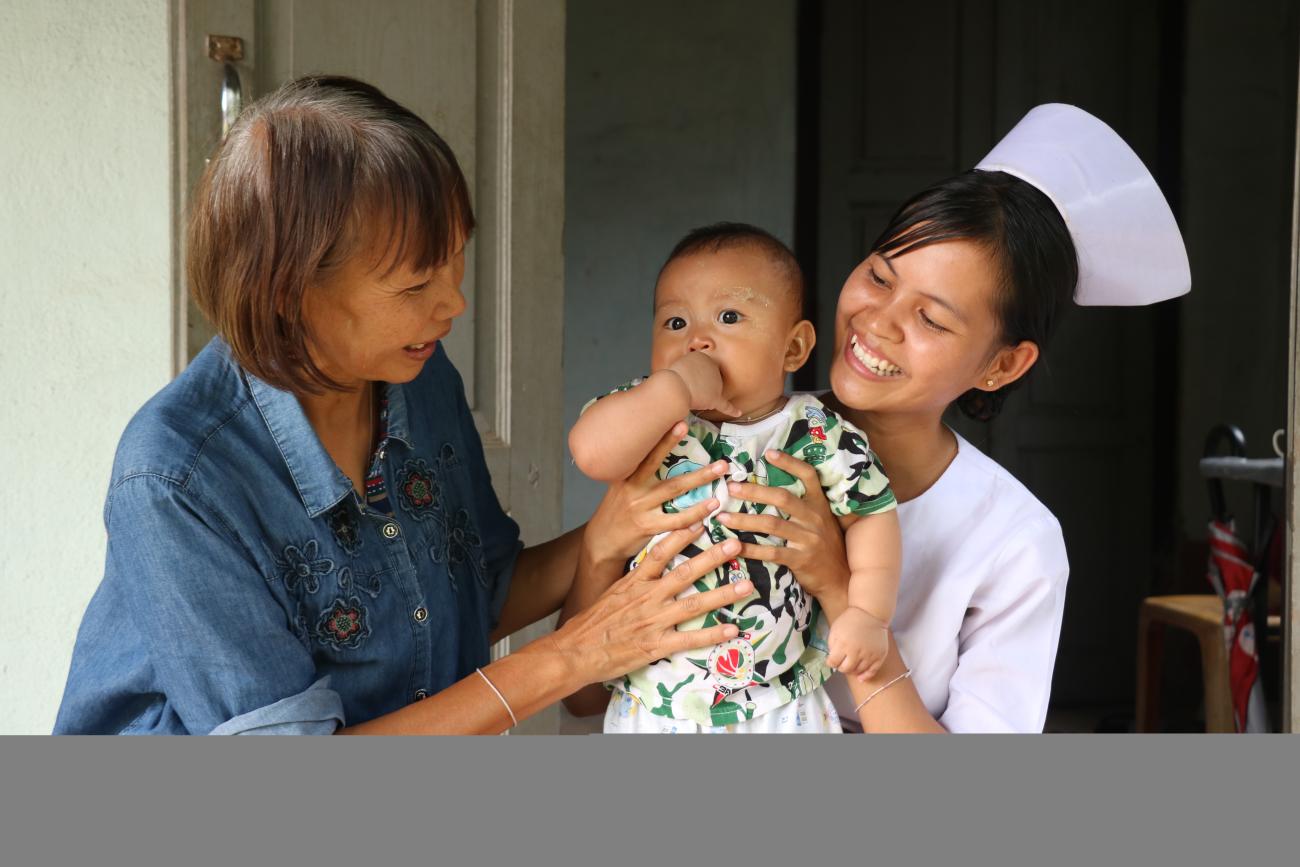The UNOPS-managed Access to Health Fund receives approximately $10 million in funding from Takeda Pharmaceutical Company Limited.
With a focus on sustainability, the funding will support a new project that will improve the capacity of ethnic health organizations to deliver key health services to vulnerable people.
"This investment from Takeda is an opportunity for UNOPS to extend the work of the Access to Health Fund into new places, serving more of the most underserved communities," said Andrew Kirkwood, Director and Representative of UNOPS in Myanmar.
The project will help strengthen maternal, newborn and child healthcare systems and healthcare for vulnerable people by constructing and improving healthcare infrastructure, providing training and support for healthcare workers, and implementing a strategic purchasing system to improve access to and the quality of care in ethnic areas of Myanmar's Shan State.
It is funded through the Global Corporate Social Responsibility Program of Takeda – a global, values-based, research and development-driven biopharmaceutical leader headquartered in Japan, committed to bringing better health and a brighter future to patients by translating science into highly innovative medicines.
More than 70 per cent of people in Shan State – the largest of Myanmar’s states and regions – live in rural areas. Conflict in many of these areas, remoteness, low health literacy and health system challenges have greatly impacted people’s ability to access quality health services. Most health indicators in Shan State are below Myanmar’s average.
In rural areas, ethnic health organizations* are critical service providers. The new project will work with ethnic health organizations and implementing partners to help strengthen the healthcare system in six townships of Shan State. This will help contribute to the sustainability of universal health coverage in Myanmar. Better access to quality services and systems will also help improve the health of communities and increase their resilience to health shocks.
The investment from Takeda is in addition to $220 million in funding from the governments of the United Kingdom, Sweden, the United States and Switzerland. Over the years, these four countries have come together to improve healthcare in Myanmar, especially among the most vulnerable populations in conflict-affected areas.
- *Ethnic health organizations serve conflict-affected populations in the border areas of Myanmar. They were established by various ethnic armed organizations, which are governing bodies representing various ethnic groups that operate outside the auspices of the government of Myanmar.



